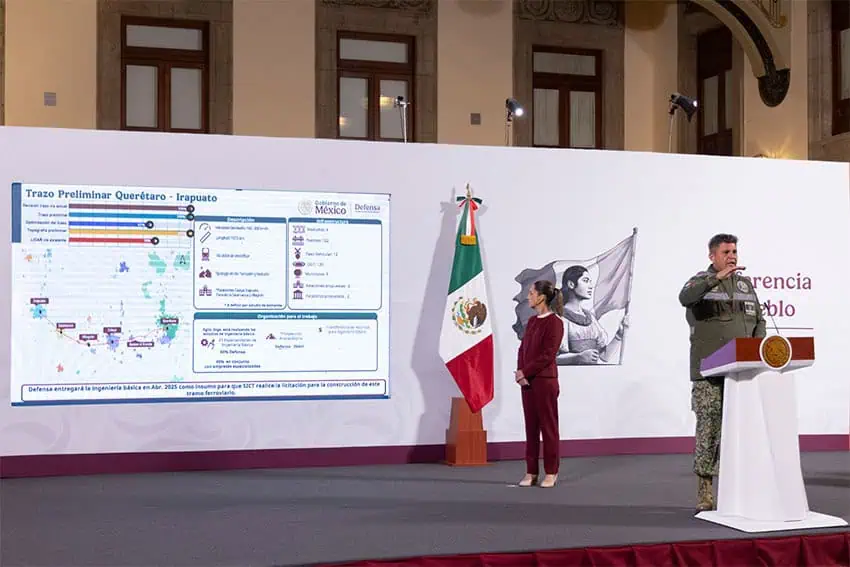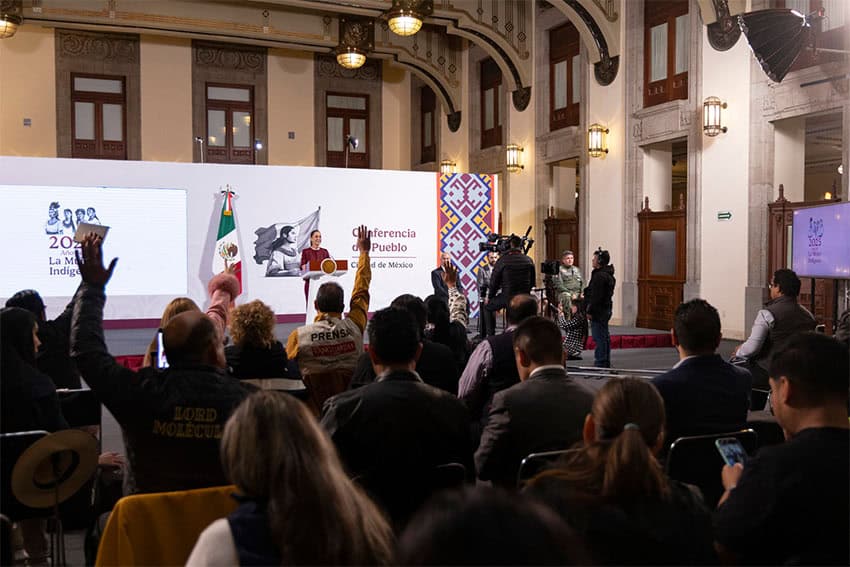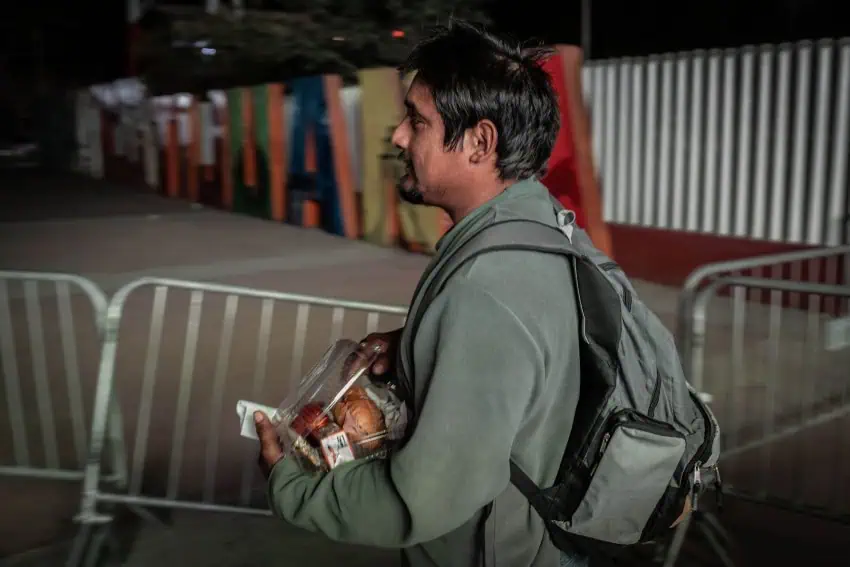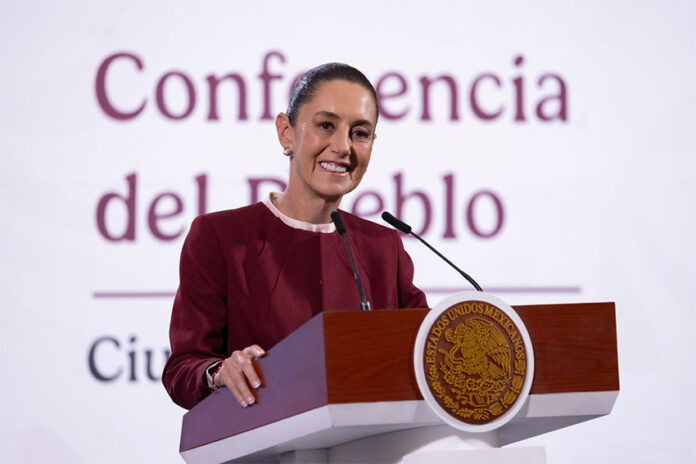United States citizens arrested in Mexico, Mexicans deported from the U.S. and U.S. spy planes were all discussed at President Claudia Sheinbaum’s Thursday morning press conference.
The federal government’s passenger train projects were also on the agenda, including one planned railroad that will run all the way to the Mexico-United States border (see MND’s story here).

2,600 US citizens have been arrested in Mexico in the last 6 years
A reporter from the Animal Político news outlet noted that Animal Político published an investigation this week that found that more than 2,600 United States citizens have been arrested in Mexico for offenses related to organized crime — including the smuggling of drugs and firearms — since former president Andrés Manuel López Obrador took office in December 2018.
Animal Político, which reviewed official data, reported that the number of U.S. citizens arrested in Mexico during López Obrador’s six-year term in office (2,500) is 457% higher than the number of Americans detained during the government of former president Enrique Peña Nieto (2012–2018). The figure is 1,195% higher than the number of U.S. citizens detained during the government of ex-president Felipe Calderón (2006-2012).
Sheinbaum told reporters she was aware of the data on arrests of United States citizens in Mexico, and said that the U.S. government is as well because it has asked for “many” of them to be extradited to face charges in the U.S.
“In the United States, there is also organized crime, and there are U.S. citizens who come to Mexico … [to carry out] these illicit activities,” she said.
“Why do we say [there is organized crime in the U.S.]? Because if there wasn’t, who would distribute fentanyl in United States cities?” Sheinbaum said.

“… The issue isn’t just that drugs go from Mexico to the United States,” she added.
Sheinbaum reiterated that Mexico is willing to collaborate with the U.S. government on security issues in Mexico. However, she stressed that the United States government also has to “do its work” to “avoid the trafficking of drugs in their country.”
“… In the United States, they also have to act,” she said.
Just over 2,000 deportees have stayed at reception centers in border cities
Sheinbaum said that 2,016 people deported to Mexico from the United States have stayed at the 10 reception centers that the Mexican government recently set up in northern border cities, including Tijuana, Mexicali, Ciudad Juárez, Matamoros and Reynosa.
“Those who stay there stay for very little time,” she said. “They prefer to go to their places of origin.”
Sheinbaum said that 158 people slept in one of the 10 centers on Wednesday night.
Although demand for the temporary accommodation has not yet been very high, the centers will remain open, she said.
“I’ve made that decision, … to wait [to see what happens] in the coming months, no? And always provide support to our brothers and sisters,” Sheinbaum said.
The federal government developed a plan called “México te abraza” (Mexico embraces you) to support Mexican immigrants deported from the U.S. by the Trump administration.

Sheinbaum said last Friday that Mexico had received just under 11,000 deportees from the United States since Donald Trump took office on Jan. 20.
US spy plane flights ‘don’t alarm us,’ says Sheinbaum
Sheinbaum said that the spy plane missions reportedly carried out by the United States military near and south of the U.S.-Mexico border to surveil Mexican cartels “don’t alarm us.”
“… It’s not the first time that there is a flight of this kind,” she said, referring to one flight that passed near Cabo San Lucas on the southern tip of the Baja California peninsula last week.
“It’s important that that is known,” Sheinbaum said, also highlighting that the flight didn’t enter Mexican airspace.
Her government will ask its U.S. counterpart about the flight, but not in a “special letter,” she said.
Rather, Sheinbaum elaborated, it will seek information as part of the “coordination work” Mexico and the United States carry out on security issues.
“It’s not the first time that a flight of this kind occurs,” she reiterated.
“The thing is that now there is more sensitiveness about [security] issues,” Sheinbaum said.
By Mexico News Daily chief staff writer Peter Davies (peter.davies@mexiconewsdaily.com)
